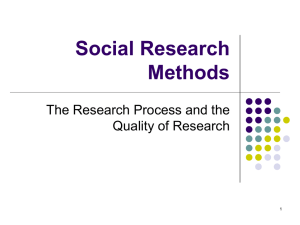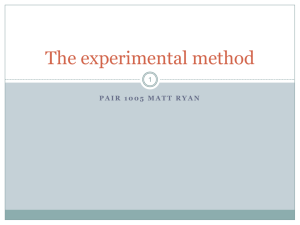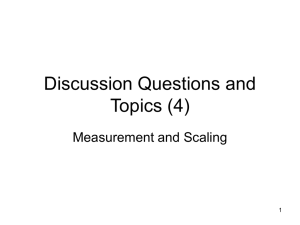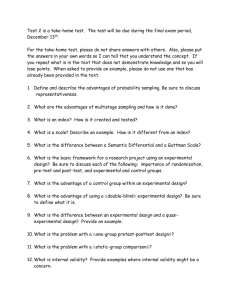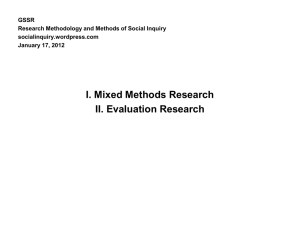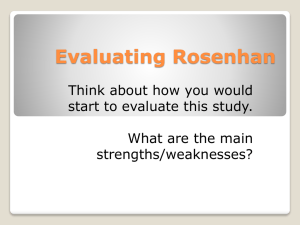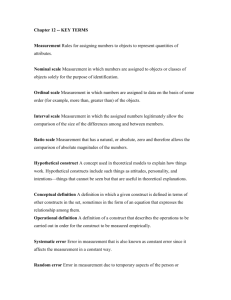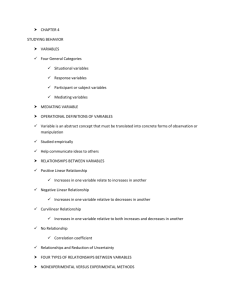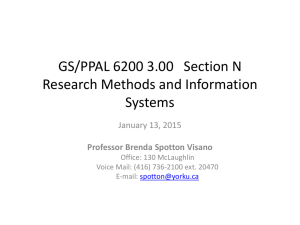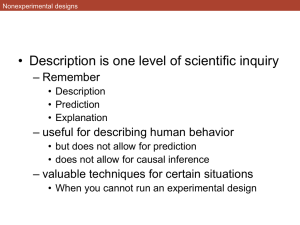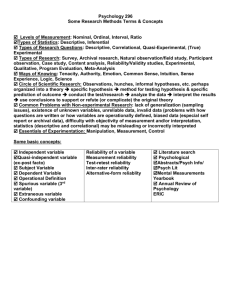2015-04-23 Research Methods final exam study sheet
advertisement
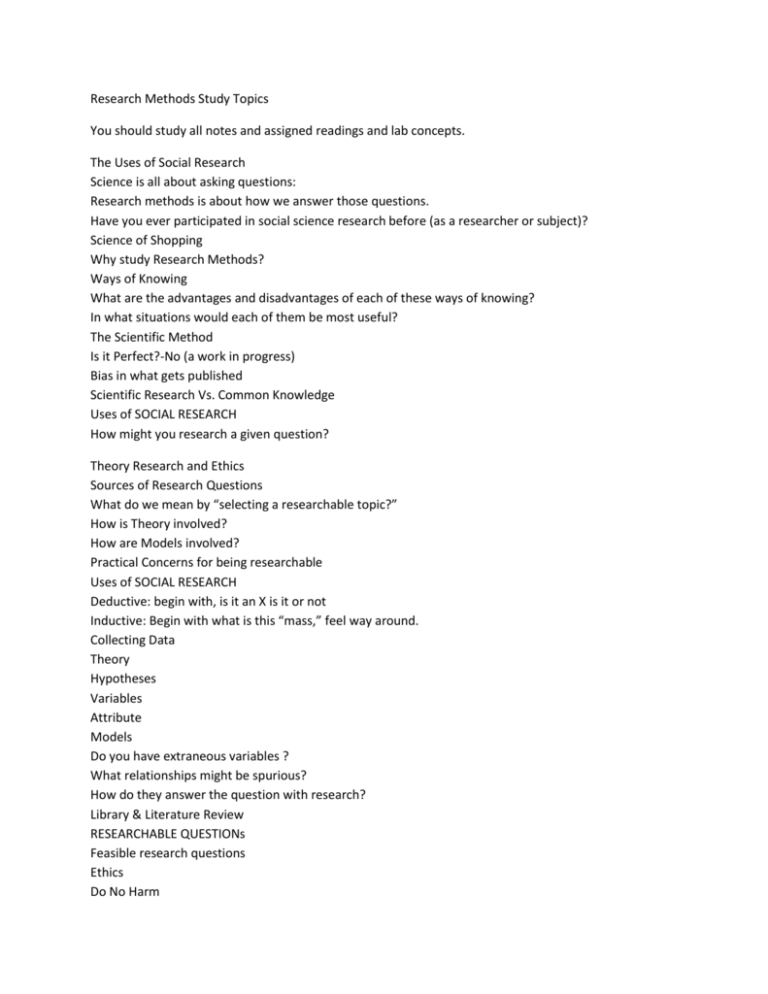
Research Methods Study Topics You should study all notes and assigned readings and lab concepts. The Uses of Social Research Science is all about asking questions: Research methods is about how we answer those questions. Have you ever participated in social science research before (as a researcher or subject)? Science of Shopping Why study Research Methods? Ways of Knowing What are the advantages and disadvantages of each of these ways of knowing? In what situations would each of them be most useful? The Scientific Method Is it Perfect?-No (a work in progress) Bias in what gets published Scientific Research Vs. Common Knowledge Uses of SOCIAL RESEARCH How might you research a given question? Theory Research and Ethics Sources of Research Questions What do we mean by “selecting a researchable topic?” How is Theory involved? How are Models involved? Practical Concerns for being researchable Uses of SOCIAL RESEARCH Deductive: begin with, is it an X is it or not Inductive: Begin with what is this “mass,” feel way around. Collecting Data Theory Hypotheses Variables Attribute Models Do you have extraneous variables ? What relationships might be spurious? How do they answer the question with research? Library & Literature Review RESEARCHABLE QUESTIONs Feasible research questions Ethics Do No Harm Voluntary Consent Informed Consent Anonymity Confidentiality Institutional Review Board for the Protection of Human Subjects” 3 Picking the People you Want to Study Sampling Population Census sample Why Sample? Simple Random Sampling Systematic Random Sampling Operationalization and Measurement Measurement The assignment of values (and often numbers) to objects or events so that we can study them Steps in Measurement Operationalization Indicators Index (a composite measure) scale reliability Validity of Measures face validity: content validity: predictive validity: construct validity: internal validity: external validity: Lying on Surveys- So use Time Diary-What We Say About Our Religion, And What We Do 4 Selecting an Appropriate Research Design and Survey Design Correlation vs Causality Common response Confounding factors Coincidence. REQUIREMENTS FOR ESTABLISHING CAUSALITY Random Experiment- Study Shows Riding The Quiet Car Is Crushing Your Spirit control group randomization Learning the Test effect Comparison Group Quasi Experiment Non-Experimental Research Designs Panel Design Longitudinal Trend or Cohort Study Questionnaires and Structured Interviews 5 Qualitative Research Deductive observational techniques. What does that data look like? Thin description : uses basic language without much detail Thick: has much more detail How might you describe each of these using thick versus thin approaches? Controlled Observations involve clear decisions about what kinds of things are to be observed. Qualitative Data Collection Techniques Descriptive Data Transcribing Qualitative Data Analysis Process Issues of Access naturalistic Demand characteristics Interviewer effect Visual sociology Using images as a source of data Thin description Thick How might you describe each of these using thick versus thin approaches? Controlled Observations. Applied Social Research Available Data Content Analysis Uses of SOCIAL RESEARCH The Policy Cycle Content Analysis
